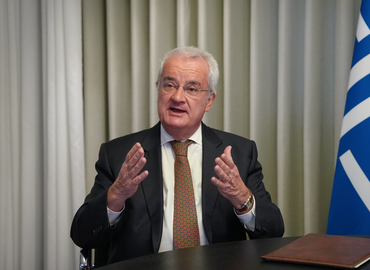KAICIID Strengthens Multi-Faith and UN Partnerships During Outreach Mission to New York
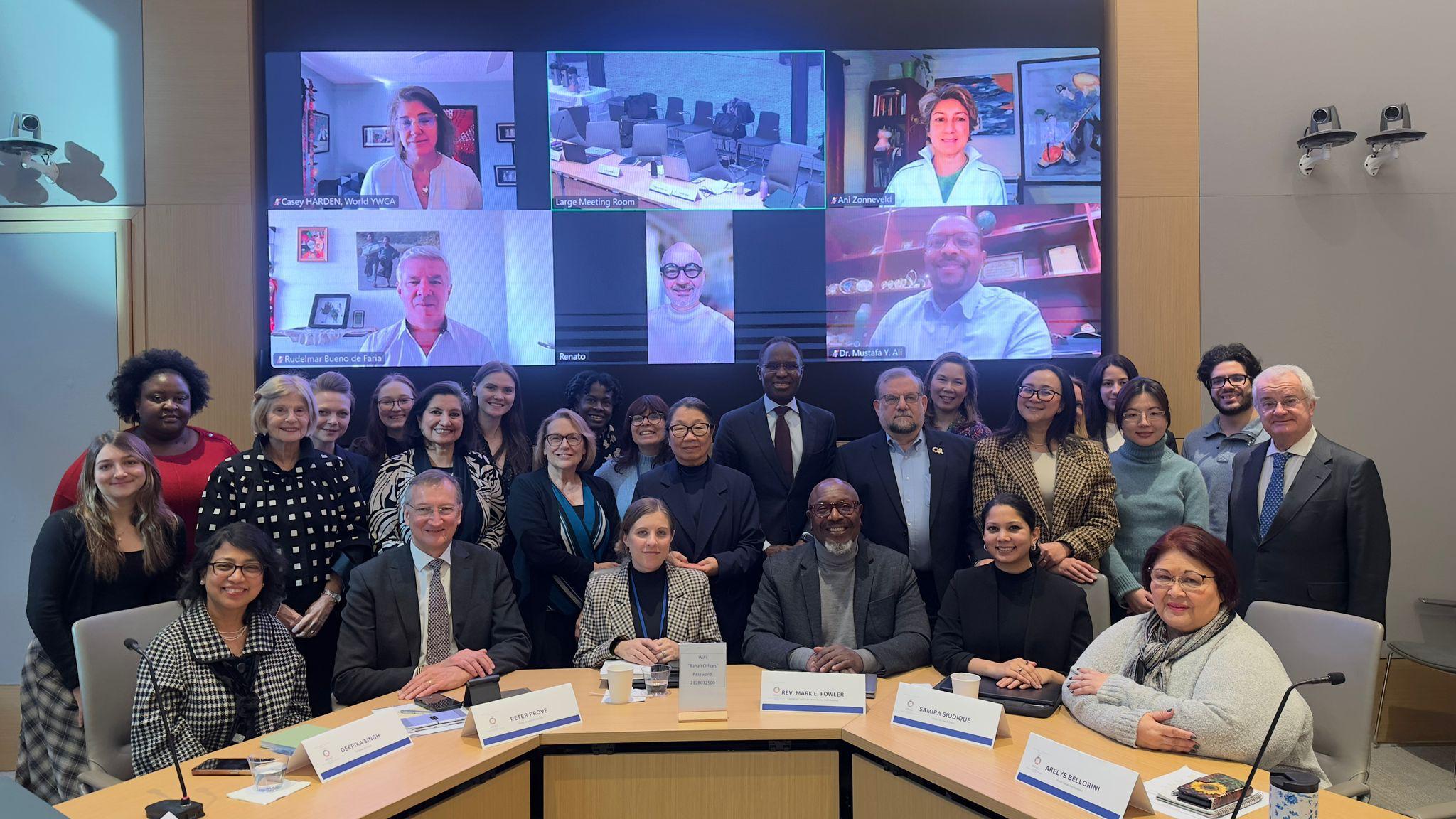
New York, January 2025 – KAICIID’s recent outreach mission to New York marked a significant step in reinforcing its institutional priorities for 2025 and expanding its collaborations with key UN entities, diplomatic representatives, and faith-based organizations. Led by the Acting Secretary General (ASG); Ambassador António de Almeida Ribeiro, the mission focused on participation in the Multi-Faith Advisory Council (MFAC) retreat, strategic bilateral meetings, and dialogues aimed at strengthening KAICIID’s engagement with the UN system and global faith-based actors. The outreach mission coincided with the International Holocaust Remembrance Day and reaffirmed the Centre's unwavering commitment to fostering interreligious dialogue, mutual understanding, and sustainable peace.
KAICIID’s Engagement in the Multi-Faith Advisory Council (MFAC) Annual Retreat
As a longstanding member of the Multi-Faith Advisory Council to the UN Inter-Agency Taskforce on Religion and Sustainable Development (MFAC to the IATF-Religion), KAICIID was invited to the annual MFAC retreat, held at the Bahá'í International Community’s UN Office on January 29th-30th, 2025. The retreat, co-chaired by UNAOC, the UN Office on Genocide Prevention (UNOSAPG), and UNFPA, provided a strategic platform to assess progress and amplify the collective impact of MFAC’s work in advancing Agenda 2030.
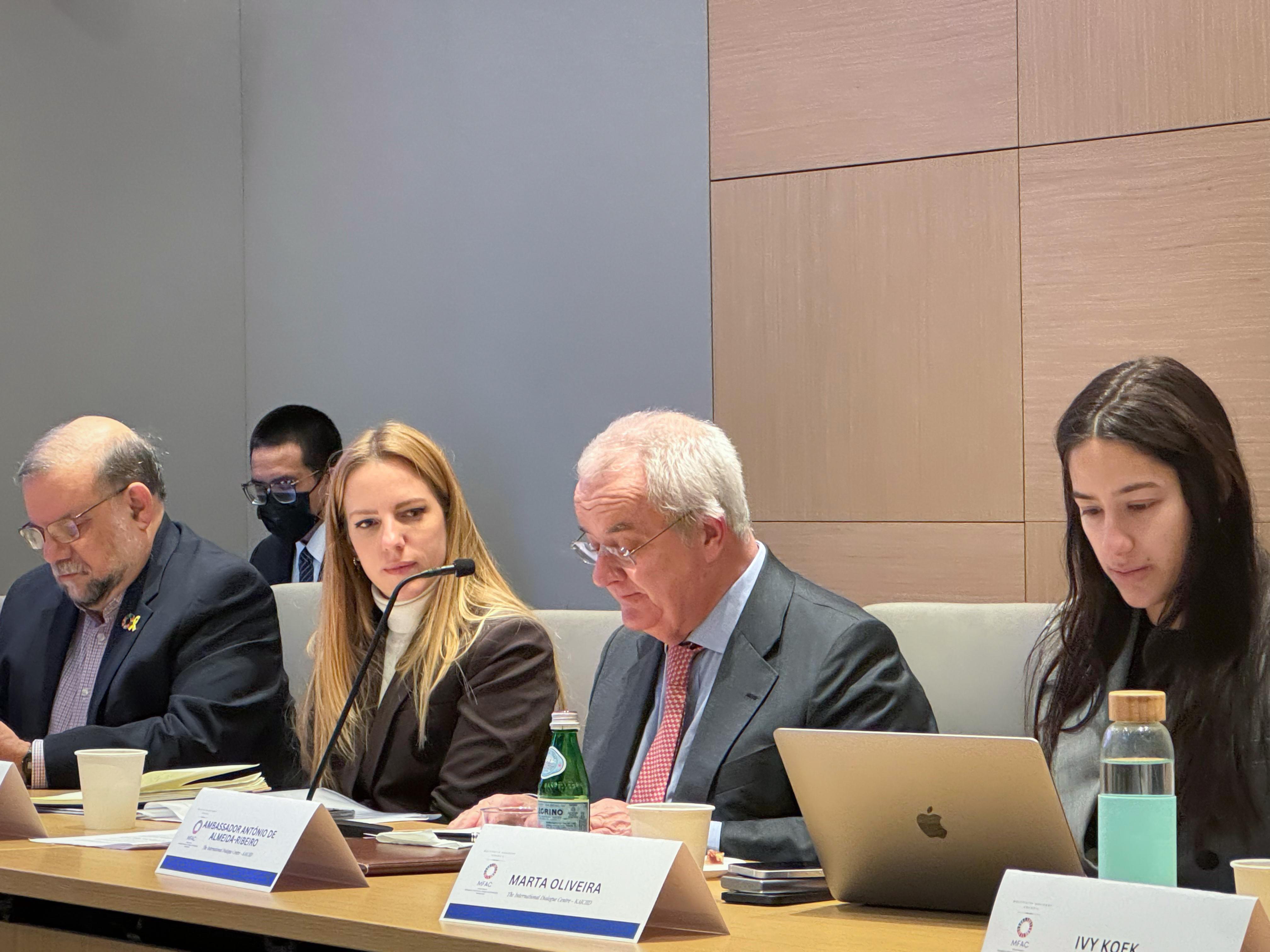
The discussions were led by the MFAC co-chairs, namely Dr. Mohammed ElSanousi and Ms. Debrah Boudreaux. KAICIID’s ASG played a pivotal role in setting the tone for the necessity of multilateralism, particularly on how the MFAC and its members can help bridge the gap and strengthening the UN’s religious literacy in understanding religions and religious impact and contribute to development literacy at the grassroots. The ASG reaffirmed KAICIID’s commitment to advocating for greater visibility of MFAC’s work, particularly in the context of the Kofi Annan Faith Briefings, and engaging Permanent Missions—including KAICIID’s CoP, as key interlocutors for future MFAC initiatives.
As the only intergovernmental organization in MFAC since its inception, KAICIID continues to bridge dialogue between policymakers, the international community, and religious organizations, ensuring that religious voices contribute to policy discussions and development strategies.
Launch of the Gender Working Group Brochure and Advancing the Women’s Empowerment Agenda
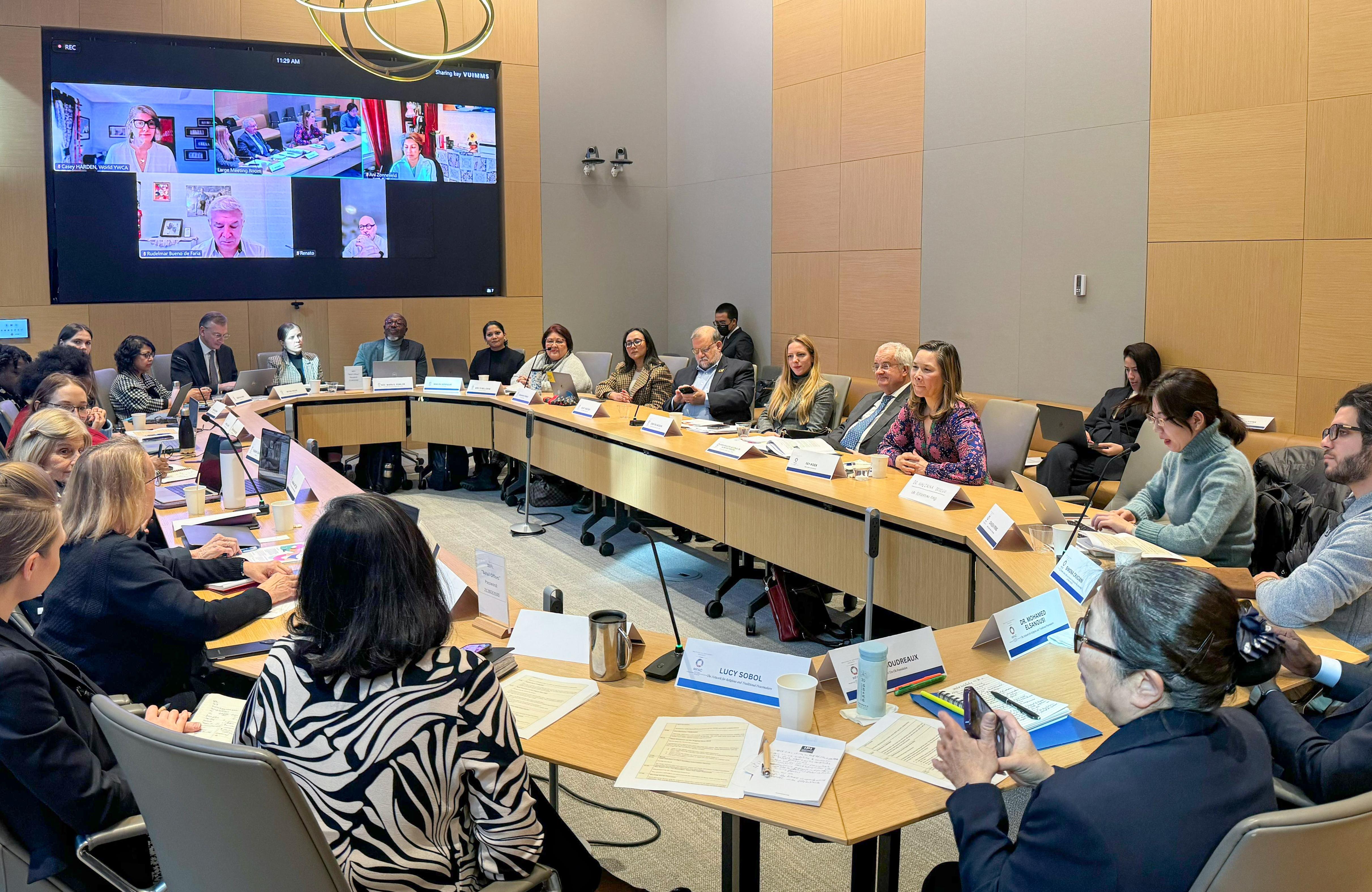
A key highlight of the retreat was the launch of the MFAC Gender Working Group’s new brochure on women and girls' empowerment. KAICIID, as a proud contributor to the Working Group, played an instrumental role in shaping this resource, which introduces the broader international community to the platform’s efforts in leveraging religious actors for gender equality and Sustainable Development Goal 5 (SDG 5).
Looking ahead, KAICIID is actively engaged in preparations for the 69th Session of the Commission on the Status of Women (CSW), where the Gender Working Group will host a high-level multi-faith reception to commemorate 30 years since the 1995 Fourth World Conference on Women and the adoption of the Beijing Declaration and Platform for Action (Beijing+30). This reception aims to foster dialogue among UN representatives, governments, and faith actors on the contribution of religious communities in advancing SDG 5 amid today’s global challenges.
The event, co-organized by the Gender Working Group, the Joint Initiative for Strategic Religious Action (JISRA), and the International Partnership on Religion and Sustainable Development (PaRD), will provide a unique space for in-depth discussions on faith actors' contributions to human rights, gender equality, and sustainable development.
Strengthening Institutional Partnerships with UN Agencies and Diplomatic Representatives
Beyond the MFAC retreat, the ASG engaged in strategic dialogues with key institutional partners and diplomatic representatives to reinforce KAICIID’s commitment to collaboration and knowledge exchange. These discussions reiterated KAICIID’s dedication to fostering dialogue with global partners and leveraging existing networks to support interreligious and intercultural cooperation.
KAICIID’s Commitment to the Agenda 2030 and the Pact for the Future
KAICIID remains deeply engaged in supporting the UN’s 2025 priorities, particularly the Pact for the Future and advancing the Agenda 2030. Through its strategic partnerships with faith-based organizations and multilateral institutions, KAICIID continues to:
-
Influence policy frameworks that integrate interreligious dialogue as a tool for peacebuilding and social cohesion.
-
Advocate for inclusive societies that embrace religious and cultural diversity.
-
Strengthen global collaboration between faith actors and policymakers to address pressing global challenges.
By fostering dialogue and cooperation across religious, diplomatic, and policy spheres, KAICIID is committed to ensuring that religious and cultural diversity is recognized as a resource for peace rather than a source of division.
As KAICIID looks forward to future engagements with the UN and global faith-based organizations, it remains steadfast in its mission to leverage interfaith dialogue to build bridges, foster mutual understanding, and contribute to a more just, peaceful, and inclusive world.
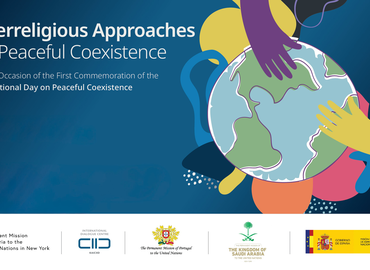
As discrimination, hate speech and identity-based violence…
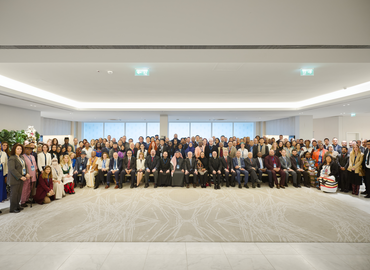
- KAICIID marks 10 years of global peacebuilding, uniting over 130 leaders in…


